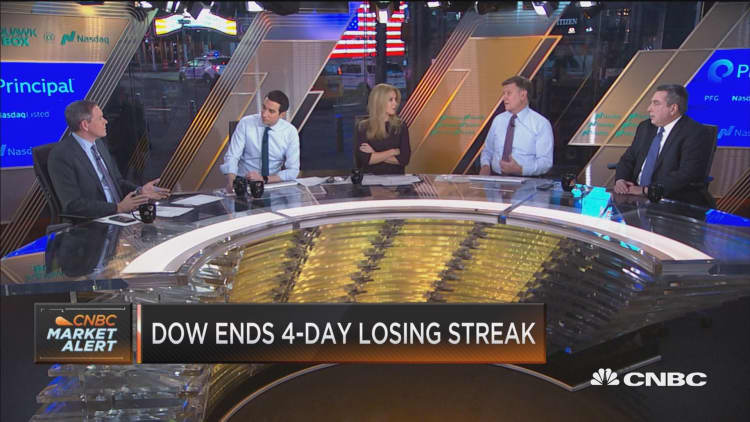
A full-blown economic cold war between the United States and China could send stocks into a bear market, BTIG chief equity and derivatives strategist Julian Emanuel told CNBC on Tuesday.
"If this is really the start of a protracted economic cold war, multiples are coming in," said Emanuel. He signaled a level of about 2,300 next year, nearly 14 percent lower than Monday's close.
With the index already 9 percent lower than the Sept. 21 all-time intraday record, such a move would more than qualify as a bear market as measured by a drop of 20 percent or more from recent highs.
In putting forth this downside scenario, BTIG conducted an analysis of price-to-earnings ratios during the Cold War with Russia from 1960 to the fall of the Berlin Wall in 1989 to multiples from 1989 to now.
"That difference is over four multiple points," a difference consistent with trade wars of the past, Emanuel said on "Squawk Box." From the start of those conflicts out 12 months, the market on average has been down about 20 percent, he added.
The stock rout in October and the volatile November already knocked about 3 points off the market multiple since last year, said Emanuel.
FactSet puts the current forward 12-month P/E ratio for the S&P 500 at 15.1, below the 5-year average of 16.4 but above the 10-year average of 14.5.
"We're still basically at historical averages. If you start drifting to that other regime, you're talking about downside consistent with other trade wars of around 2,300 on the S&P," Emanuel said.
The financial community has been hoping the meeting of President Donald Trump and Chinese President Xi Jinping at this week's G-20 summit in Argentina will keep the trade war between the world's two biggest economic superpowers from escalating.
However, ahead of that meeting, Trump told The Wall Street Journal Monday it's "highly unlikely" he would delay a planned January tariff increase on $200 billion worth of Chinese goods from 10 percent to 25 percent. The president also renewed his threat to put tariffs on the rest of China's imports into the U.S.


